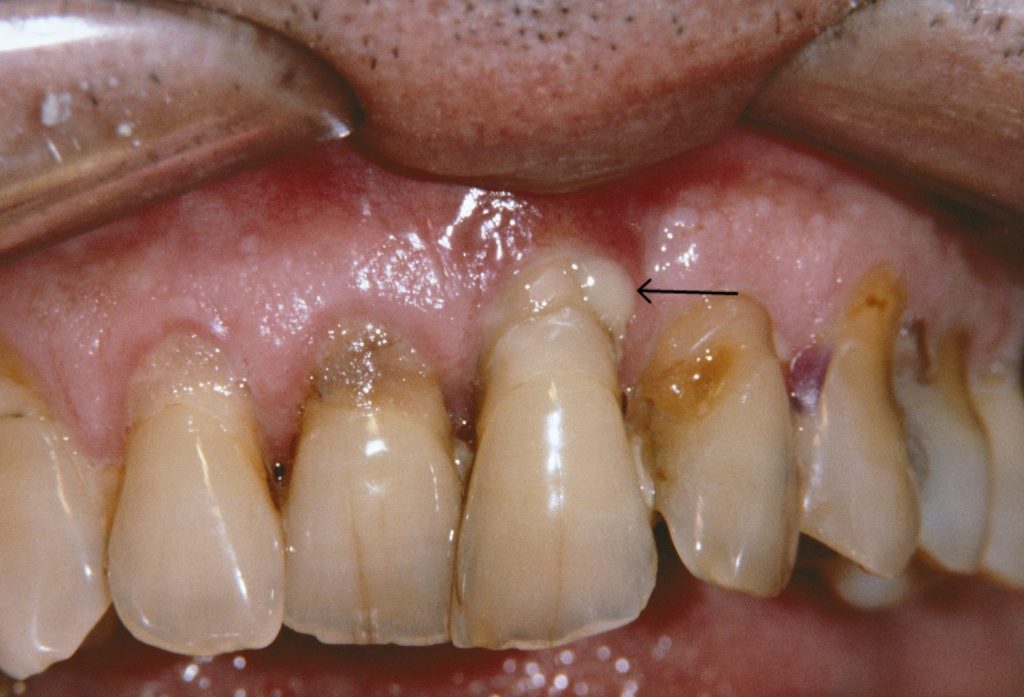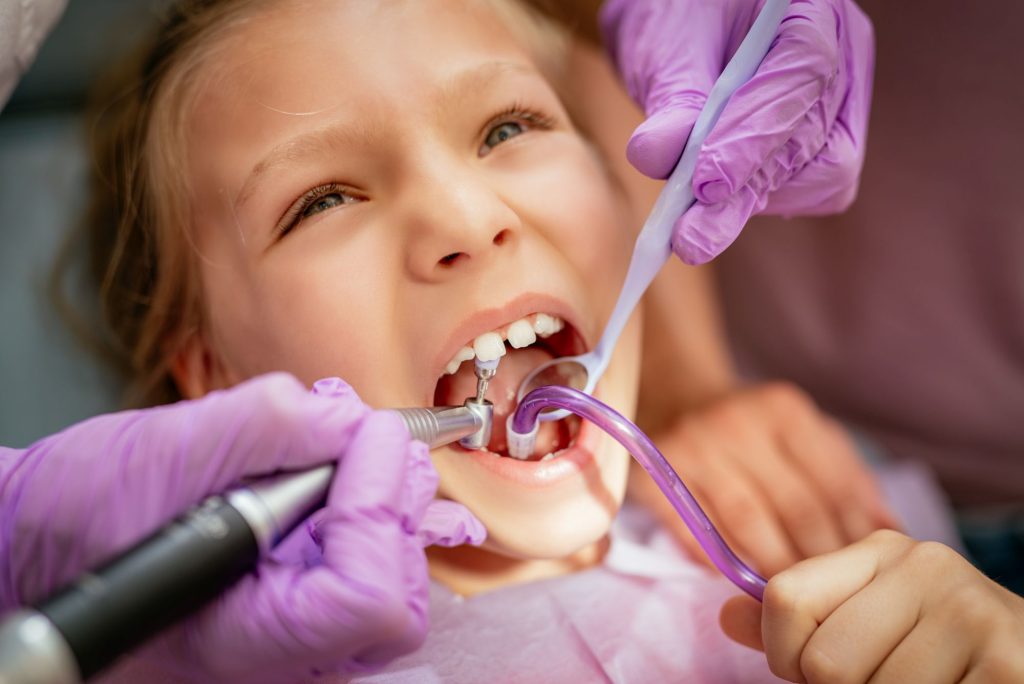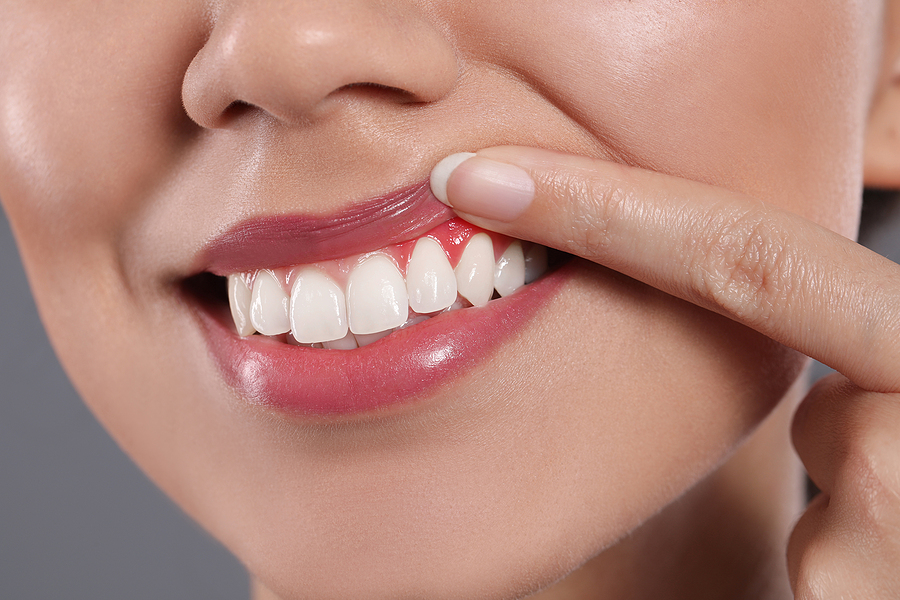Table of Contents
When it comes to oral health, our gums often take the back seat until discomfort or problems arise. Gum disease, ranging from the mild form known as gingivitis to the more severe periodontitis, is a prevalent yet often overlooked condition that affects millions worldwide. While a visit to the dentist is crucial for comprehensive care, there are proactive steps and home remedies that can significantly contribute to managing and even reversing gum disease.
Gum disease isn’t just about occasional bleeding gums or persistent bad breath; it poses a risk to our overall health. Research increasingly links gum disease to systemic health issues like heart disease, diabetes, and complications during pregnancy. Yet, the good news is that early intervention and consistent home care can make a substantial difference in combating gum disease.
In this comprehensive guide, we’ll delve into effective home remedies and practices aimed at tackling gum disease. Understanding its causes, recognizing symptoms, and implementing targeted strategies can empower people to take charge of their oral health. From simple changes in oral hygiene routines to exploring natural remedies and making lifestyle adjustments, this guide will equip you with actionable steps to mitigate and potentially reverse the effects of gum disease.
Understanding Gum Disease
What is Gum Disease?
Gum disease occurs due to the accumulation of plaque, a sticky film of bacteria that forms on the teeth. When plaque isn’t adequately removed through proper oral hygiene practices, it hardens into tartar, leading to irritation and inflammation of the gums. This initial stage, known as gingivitis, often manifests as swollen, tender, or bleeding gums during brushing or flossing.
Recommended: Top 5 Warning Signs Of Periodontal Disease
Causes and Risk Factors
Several factors contribute to the development and progression of gum disease. Poor oral hygiene ranks high among these factors, but genetics, hormonal changes (such as during pregnancy or menopause), certain medications, smoking, and systemic diseases like diabetes also play significant roles.
Identifying Symptoms
Recognizing the signs and symptoms of gum disease is crucial for early intervention. Symptoms of gingivitis include red, swollen gums that bleed easily, especially during brushing or flossing. Persistent bad breath or a persistent bad taste in the mouth can also signal gum disease. As it progresses to periodontitis, additional symptoms such as receding gums, loose teeth, and changes in the bite or the way teeth fit together may become apparent.
Impact on Overall Health
Beyond its effects on oral health, gum disease has been linked to broader health implications. Research suggests a correlation between gum disease and systemic conditions such as heart disease, diabetes, respiratory infections, and complications during pregnancy. The inflammation caused by gum disease can potentially exacerbate existing health issues or contribute to their development.
Importance of Early Intervention
Early detection and intervention are critical in managing gum disease. Addressing gingivitis promptly through improved oral hygiene practices and lifestyle changes can often prevent its progression to more severe stages. Understanding the significance of gum disease and its potential impact on overall health underscores the importance of proactive measures in its management.
Recommended: 6 Awful Oral Health Problems Common To Elderly People
By comprehending the underlying causes, recognizing symptoms, and acknowledging the potential health implications, people can take proactive steps toward preventing, managing, and potentially reversing the effects of gum disease at home.

Home Remedies for Treating Gum Disease
Maintaining optimal oral hygiene and implementing natural remedies can significantly contribute to managing gum disease from the comfort of your home. These practices, when incorporated into your daily routine, can aid in alleviating inflammation, reducing bacteria, and promoting healthier gums.
The medical information provided in this article is provided as an information resource only. This information does not create any patient-physician relationship and should not be used as a substitute for professional diagnosis and treatment.
1. Proper Oral Hygiene
- Brushing Techniques: Gentle, circular motions when brushing can effectively remove plaque without damaging sensitive gum tissue. Consider using a soft-bristled toothbrush.
- Flossing Regularly: Flossing helps remove plaque and debris between teeth and along the gum line, where a toothbrush might not reach effectively. Proper flossing techniques are crucial to prevent irritation and bleeding.
2. Diet and Nutrition for Oral Health
- Gum-Healthy Foods: Incorporate foods rich in nutrients crucial for gum health, such as leafy greens, crunchy fruits and vegetables (like apples and carrots), and foods high in vitamin C.
- Limit Sugary and Acidic Foods: Sugary and acidic foods contribute to plaque formation and enamel erosion, worsening gum disease. Minimize their intake for better oral health.
3. Herbal and Natural Remedies
- Saltwater Rinses: Gargling with warm salt water can help reduce inflammation and promote healing. It acts as a natural disinfectant, soothing irritated gums.
- Oil Pulling: Swishing a tablespoon of coconut oil or sesame oil in the mouth for about 15-20 minutes may help reduce bacteria and plaque buildup.
4. Herbal Solutions
- Tea Tree Oil: Diluted tea tree oil has antimicrobial properties that can be beneficial for gum health. Use it as a mouthwash by adding a few drops to water, but ensure it’s properly diluted to avoid irritation.
- Aloe Vera Gel: Its anti-inflammatory and healing properties can be soothing for inflamed gums. Applying a small amount of aloe vera gel to the gums can offer relief.
Consistency is key. Stick to a daily routine of brushing, flossing, and rinsing to maintain oral hygiene and aid in managing gum disease. Improvement might take time. Monitor your gums for changes and be patient as you integrate these remedies into your routine.
Recommended: Regular Dental Check-Up: Why Is It Important?
While these home remedies can complement gum disease management, they should not replace professional dental care. Consult a dentist if symptoms persist or worsen. Follow instructions carefully when using natural remedies to avoid adverse effects or allergic reactions.
By integrating these home remedies into your daily regimen and adopting a holistic approach to oral care, people can contribute significantly to managing gum disease and fostering healthier gums between dental visits.
Lifestyle Changes for Gum Disease Management
Beyond oral hygiene practices, certain lifestyle adjustments play a pivotal role in preventing and managing gum disease. These changes target factors that can exacerbate gum problems and promote overall oral health.
1. Stress Management and Oral Health
Stress weakens the immune system, making it harder for the body to fight off infections, including gum disease. Recognize stress triggers and employ stress-relief techniques.
Incorporate mindfulness practices like meditation, yoga, or deep breathing exercises to manage stress levels and promote better oral health.
2. Smoking Cessation for Gum Health
Smoking weakens the immune system and hampers blood flow to the gums, making smokers more susceptible to gum disease.
Quitting smoking significantly improves gum health. Seek professional support or join smoking cessation programs to quit successfully.
Recommended: How Long Does It Take For Smoking To Affect Your Teeth?
3. Importance of Nutritious Diet
A balanced diet rich in vitamins and minerals, especially vitamin C, calcium, and antioxidants, supports gum health and boosts the immune system. Drinking plenty of water helps flush out bacteria and food particles, contributing to better oral health.
4. Regular Exercise and Oral Health
Regular physical activity improves circulation and strengthens the immune system, which indirectly contributes to better gum health. Exercise may reduce inflammation in the body, potentially benefiting gum health as well.
5. Oral Care Products and Tools
Opt for oral care products recommended by dentists, such as toothpaste with fluoride and a soft-bristled toothbrush. Consider using interdental brushes, water flossers, or tongue scrapers as supplementary tools to enhance oral hygiene.
6. Regular Check-ups and Professional Cleanings
Regular dental check-ups allow for early detection and professional management of gum disease. Dental cleanings remove tartar and plaque buildup that cannot be removed through regular brushing and flossing.
7. Patience and Persistence
Results may take time. Stay committed to implementing these lifestyle changes and maintaining a consistent oral care routine. Continuously monitor oral health changes and adapt lifestyle habits accordingly.
Recommended: 5 Best Mouthwash For Cigarette Smokers
By integrating these lifestyle changes into daily routines, individuals can proactively address factors that contribute to gum disease and foster an environment conducive to healthier gums and overall oral well-being. These changes, coupled with regular professional dental care, can significantly mitigate the impact of gum disease.

Tools and Practices for Effective Gum Care
Optimal gum care involves utilizing appropriate tools and implementing specific practices to ensure thorough oral hygiene and gum health.
Choosing the Right Tools
- Toothbrush Selection: Opt for a soft-bristled toothbrush to prevent gum irritation and enamel erosion. Consider electric toothbrushes with pressure sensors to avoid brushing too aggressively.
- Flossing Aids: Explore different types of dental floss (waxed, unwaxed, floss picks) to find the most comfortable and effective option for cleaning between teeth and along the gumline.
Techniques for Gentle Gum Care
- Gentle Brushing: Use gentle, circular motions when brushing to clean teeth thoroughly while avoiding excessive pressure on the gums.
- Proper Flossing: Employ a gentle back-and-forth motion to floss between teeth, curving around each tooth and reaching below the gumline without causing irritation.
Additional Oral Care Tools
- Interdental Brushes: These small brushes help clean between teeth and can be particularly useful for individuals with larger spaces between teeth or dental work.
- Water Flossers: Utilize water flossers to dislodge food particles and bacteria from hard-to-reach areas, promoting gum health and reducing plaque buildup.
Gum Massage and Stimulation Techniques
- Gentle Gum Massage: Using a clean finger, gently massage the gums in a circular motion to stimulate blood flow and promote gum health. This can be done after brushing.
- Chewing Sugar-Free Gum: Chewing sugar-free gum stimulates saliva production, which helps cleanse the mouth and aids in removing food particles.
Importance of Regular Dental Check-ups
- Scheduled Dental Visits: Maintain regular appointments with your dentist for professional evaluation, early detection, and management of gum disease.
- Professional Cleanings: Professional cleanings remove plaque and tartar buildup, preventing gum inflammation and reducing the risk of gum disease.
Consistency and Adaptation
- Daily Routine: Establish a consistent oral care routine that includes brushing, flossing, and using supplementary tools, ensuring thorough gum care.
- Adaptation to Needs: Tailor your oral care routine based on individual needs and any changes in oral health status.
Patient Education and Guidance
- Dentist Consultation: Seek advice from your dentist regarding proper tools and techniques for gum care tailored to your oral health needs.
- Educational Resources: Utilize resources provided by dental professionals to stay informed about the best practices for maintaining healthy gums.
Recommended: What Can Expired Mouthwash Be Used For?
By incorporating these tools and practices into daily oral care routines and prioritizing regular dental check-ups, individuals can ensure comprehensive gum care, reducing the risk of gum disease and fostering better oral health. Consulting with dental professionals for guidance and education remains integral to effective gum care strategies.
Precautions and When to Seek Professional Help
While home remedies and proactive measures play a crucial role in managing gum disease, there are essential precautions to consider and specific signs that warrant professional intervention.
Warning Signs and Indications
- Persistent Symptoms: If symptoms of gum disease, such as bleeding gums, persistent bad breath, or changes in gum appearance, persist despite home care efforts, it’s essential to seek professional evaluation.
- Increasing Discomfort: Any escalation in gum pain, swelling, or sensitivity, especially if accompanied by pus between gums and teeth, indicates a need for immediate dental attention.
- Loose Teeth or Shifting: Any noticeable changes in the positioning or stability of teeth could indicate advanced stages of gum disease and require prompt professional assessment.
Importance of Professional Evaluation
- Expert Diagnosis: Dentists can provide accurate diagnoses based on comprehensive examinations, X-rays, and evaluations of gum health, determining the severity and specific treatment required.
- Tailored Treatment Plans: Professional guidance ensures personalized treatment plans that address individual needs and the stage of gum disease.
Timely Intervention in Severe Cases
- Advanced Periodontitis: In cases of advanced periodontitis, where the supporting structures of the teeth are significantly affected, professional treatments such as scaling and root planing, antibiotics, or surgery may be necessary.
- Preventing Complications: Early detection and intervention by dental professionals prevent complications like tooth loss and the potential spread of infection to other parts of the body.
Combining Home Care with Professional Treatment
- Supplementing Home Remedies: Professional treatments complement home care efforts, providing targeted interventions for gum disease management.
- Follow-up Care: Follow-up visits allow dentists to monitor progress, adjust treatment plans if necessary, and provide ongoing guidance for maintaining oral health.

Seeking Advice for Personalized Care
- Consultation with a Dentist: Even if symptoms seem mild, consulting a dentist for guidance and advice ensures appropriate care and prevents potential complications.
- Individualized Recommendations: Dentists can provide tailored advice on home care practices, oral hygiene techniques, and lifestyle adjustments based on individual oral health needs.
Adherence to Professional Recommendations
- Compliance with Treatment: Following dentists’ recommendations regarding prescribed treatments, medications, or follow-up appointments is crucial for the effective management of gum disease.
- Commitment to Oral Health: Maintaining regular dental visits and adhering to prescribed treatments ensures continuous monitoring and management of gum health.
Recommended: Invisalign Dental Aligners: Important Things You Must Know First
Understanding the warning signs and knowing when to seek professional help is essential in managing gum disease effectively. Professional evaluation and intervention, combined with consistent home care practices, form a comprehensive approach to ensuring optimal gum health and preventing potential complications associated with untreated gum disease.
FAQs
Can gum disease be cured without seeing a dentist?
While managing the early stages of gum disease at home is possible, curing severe cases without professional intervention is unlikely. Dentists provide crucial treatments and guidance tailored to specific conditions, ensuring effective management and preventing complications.
What home remedies are effective for gum disease?
Effective home remedies include proper oral hygiene (brushing, flossing), saltwater rinses, oil pulling, using natural agents like tea tree oil or aloe vera, maintaining a balanced diet, and stress management. These can aid in managing mild gum disease symptoms.
How long does it take to see improvement using home remedies?
Improvement timelines vary based on individual cases and the severity of gum disease. Mild cases may show improvement within weeks, while severe cases might require months of consistent home care before noticeable changes occur.
Are there foods to avoid when treating gum disease at home?
Yes, foods high in sugar and acidity can exacerbate gum disease. Avoid sugary snacks, carbonated drinks, acidic fruits, and processed foods, as they contribute to plaque buildup and worsen inflammation.
When should I seek professional help for gum disease?
It’s advisable to see a dentist if symptoms persist or worsen despite home care efforts, including persistent bleeding gums, swelling, shifting teeth, or persistent bad breath. Early professional intervention prevents the progression of gum disease.
Can natural remedies alone cure gum disease?
Natural remedies can complement gum disease management but might not cure severe cases independently. Professional guidance alongside home care is crucial for comprehensive treatment and long-term gum health.
Is it safe to use herbal solutions like tea tree oil for gum disease?
When used correctly and in appropriate dilutions, herbal solutions like tea tree oil can offer benefits for gum health. However, it’s important to follow recommended guidelines and consult with a healthcare professional if unsure.
How often should I visit a dentist while managing gum disease at home?
Regular dental check-ups, at least every six months, are recommended for monitoring gum health, receiving professional cleanings, and ensuring timely intervention if needed, even when managing gum disease at home.
Can lifestyle changes alone reverse gum disease?
Lifestyle changes play a significant role in managing gum disease. However, in advanced cases, reversing gum disease solely through lifestyle changes might be challenging. Professional intervention remains crucial for effective treatment.
What’s the role of stress in gum disease management?
Stress weakens the immune system, potentially impacting gum health. Stress management techniques like meditation, yoga, or deep breathing can indirectly contribute to better gum health alongside oral care practices.
Conclusion
Proactive home remedies and lifestyle adjustments are potent tools in managing gum disease. However, while these practices support gum health, they can’t replace the expertise of dental professionals.
By integrating these strategies into daily routines and prioritizing regular dental visits, individuals can safeguard their gum health, fostering a foundation for overall well-being.
Remember, a partnership between home care and professional guidance is key to achieving lasting oral health and preventing the progression of gum disease.





More Stories
Ashwagandha’s Impact on Cortisol Levels in Stressed People
Health care cyberattack ‘likely one of the worst,’ expert says
Accessing Medicinal Cannabis in the UK: A Comprehensive Guide